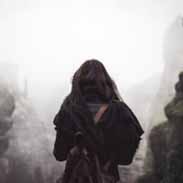CSET Social Science Subtest 2 – Flashcards
Unlock all answers in this set
Unlock answersquestion
Who helped early settlers survive the hard winter by teachig them the native methods of planting corn, squash, and pumpkins?
answer
Squanto (an Algonquian)
question
Who was a liaison to John Smith's Jamestown colony in 1607?
answer
Pocahontas
question
Who was a Shoshone Indian who played a vital role in the Lewis and Clark expedition when to explorers hire her as a guide in 1805
answer
Sacagawea
question
Who led the Sioux and Cheyenne troops in the Battle of Little Bighorn in 1876, soundly deafening George Armstrong Custer?
answer
Crazy Horse and Sitting Bull
question
Which leader of the Nez Perce settled peaceful interaction with white settlers and attempted to relocate his tribe to Canada rather than move them to a reservation.
answer
Chief Joseph
question
What tribe in the eastern part of United States lived in wigwams? There Northern tribes relied on hunting and gathering while those farther south grew crops such as corn.
answer
Algonquians
question
What tribe lived on the east coast, spoke a different language from the Algonquians and lived in rectangle houses?
answer
Iroquois
question
Document signed by 41 English colonists aboard the Mayflower on November 11th 1620. It was the first written framework of government establishment in what is now the United States. Establishing a democratic government with appointed leaders.
answer
Mayflower Compact
question
A group of "separatists" that gave up hope of reformation within the Anglican Church and wanted to separate from it to start their own churches. Settled in Plymouth. (A group of approximately 100 working class people, no live stock)
answer
Pilgrims
question
Sought to "purify" their church and reform their church from within, the Church of England continued to be the official church. Settled in Salem and Boston. (Large group of 11 ships of English immigrants primarily middle-upper class brought live stock)
answer
Puritans
question
Early colonists came looking for ___________ freedom. Those values later evolved into _________ values.
answer
Religious and political
question
Policies that called for a national bank, tariffs, and good relations with Great Britain as expressed in the Jay Treaty negotiated in 1794. Hamilton developed the concept of implied powers and successfully argued the adoption of that interpretation of the United States Constitution.
answer
Federalist
question
The movement that opposed the creation of a stronger U.S. federal government and which later opposed the ratification of the 1787 Constitution. The previous constitution, called the Articles of Confederation, gave state governments more authority.
answer
Anti-Federalism
question
The idea the God blessed and endorsed the American people to expand west to spread ideals.
answer
Manifest Destiny
question
1000 A.D.
answer
Leif Ericsson visits what is now Northeastern Canada
question
Oct. 12, 1492
answer
Christopher Columbus lands on an island in what is now the Bahamas, "discovering" the new world.
question
May 14th 1607
answer
English settlers "Puritans" est. colony of Jamestown, Va.
question
August 1619
answer
A Dutch ship delivers 20 Africans as slaves to Jamestown.
question
Dec. 21st 1620
answer
"Separatists" or "Pilgrims" from England land in Plymouth, Mass. and begin settlement.
question
1754-1763
answer
The nine-year "French-Indian War" begins. When it's over the French control much of North America. (Know as the 7 Year War because war wasn't declared until 1756 but skirmishes started in 1754)
question
March 5th 1770
answer
British Troops fire into a mob killing 5 men which led to intense public protest. (Boston Massacre)
question
April 19th, 1775
answer
British soldiers and colonial militia exchange shots at Lexington and Concord, Mass. beginning the Revolutionary war.
question
July 4th, 1776
answer
The Continental Congress adopts the Declaration of Independence.
question
Oct. 17th 1777
answer
6,000 British troops surrender in Saratoga, N.Y. The American victory helps convince France to enter the war on the side of the Americans.
question
Oct 19th, 1781
answer
A large British army surrenders at Yorktown, Va. effectively ending the Revolutionary War.
question
Sept. 17th 1787
answer
A convention of delegates in Philadelphia approves what will become the U.S. Constitution.
question
April 1789
answer
George Washington is elected the first U.S. President.
question
March 4th, 1801
answer
Thomas Jefferson becomes the third U.S. President.
question
1803
answer
The U.S. Buys 828 square miles west of the Mississippi River from France. The Louisiana Purchase cost about $15 million, 3 cents an acre.
question
June 18th, 1812
answer
Congress declares war on Britain, beginning the War of 1812.
question
Jan. 8th 1815
answer
U.S. Forces under Andrew Jackson rout a large British force at New Orleans, two weeks after a peace treaty was signed in Europe.
question
March 1820
answer
Congress approves the "Missouri Compromise," designed to keep a balance between free and slave states.
question
March 4th, 1829
answer
Andrew Jackson is inaugurated as the 7th President.
question
Jan. 26th 1830
answer
Mass. Sen. Daniel Webster gives speech in favor of preserving the Union that galvanizes support for keeping the U.S. In one piece.
question
March 24th 1844
answer
The first telegraph message is sent between Washington and Baltimore.
question
April 24th-26th 1846
answer
The Mexican War begins.
question
Jan. 24th, 1848
answer
Gold is discovered in California, triggering one of the largest mass migrations in history.
question
March 6th, 1852
answer
The U.S. Supreme Court hands down the Dred Scott decision, ruling that slaves are property and have no more rights than any other piece of property.
question
Nov. 6th 1860
answer
Abraham Lincoln is elected the sixteenth U.S. President
question
April 12th 1861 (- May 9th 1865)
answer
Southern forces fire on the federal Fort Sumter at Charleston, S.C., beginning the Civil War.



